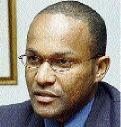Commentary - Implications of the $42-million Gillette pension surplus ruling
Published: Friday | September 25, 2009

Rezworth Burchenson, Guest Writer
Recently, the United Kingdom Privy Council made a landmark ruling with respect to the allocation of surplus in the Pension Plan for the Employees of Gillette and Radio Razor Blade Company Limited (the plan). The appeal before the Privy Council concerned the proper distribution of funds that remained in the plan, totalling J$42 million, following the plan's discontinuance at the end of 2000 and long before the enactment of the Pensions (Superannuation Funds and Retirement Schemes) Act, 2004.
The ruling essentially provided a windfall of $42 million to two former members of the plan who, at the date of its discontinuance, were the only active members. Other former members of the plan had elected, upon termina-tion of their employment with Gillette, either to accept a refund of their pension contributions with interest (terminated mem-bers) or to leave their contri-butions in the fund to receive a pension at a later date (existing members).
Critical rule
The trust deed and rules (TDR) expressly stated the manner in which the assets of the plan were to be distributed on the date of discontinuance. The critical rule 12c of the TDR for the present purposes states, among other things, "In respect of the benefits accrued and funds accumulated, the total of such funds existing at the date of discontinuance of the plan under the funding contract issued by the company to the employer shall be allocated by the company, subject to the approval of the employer, among the then members of the plan in the following manner ... ."
In essence, rule 12c provides that the total funds existing at the date of discontinuance of the plan shall be allocated, subject to the approval of Gillette, among "the then members of the plan" in the order set out under that rule.
Pertinent issues
The pertinent issues before Their Lordships were:
1. Whether terminated members ceased to be members of the plan and, therefore, could derive no further benefit under the plan because they are not "the then" members of the plan.
2. How the fund should be distributed.
3. Whether terminated members were entitled to a portion of the surplus of the fund on the argument that the employer's contribution could be regarded as a part of the terminated employee's total earnings/or remuneration. This could be interpreted to mean that an employee who terminates his employment and is refunded his contributions continues to be a member of the pension plan by virtue of the retention of the employer's contribution in respect of that terminated employee.
4. Whether the requirement of approval by Gillette gave Gillette a fiduciary power to depart from the allocation procedure stipulated under rule 12c.
The Privy Council stated that the first issue before it was solely a question of the construction of rule 12c in light of the TDR. In this regard, the Privy Council concluded that former members who, on termination, had opted for a refund of their contributions along with interest, had withdrawn from the plan and, therefore, no further benefit continued to accrue to these categories of members and, as a consequence, were not included in "the then members of the plan" and not entitled to share in the allocation of any surplus of the fund.
The Privy Council ruled that reference to "the then members of the plan" were to the sole two active members of the plan at the date of discontinuance and as a result the surplus of J$42 million is to be distributed to these active members.
Inherent powers

Michelle Parker, Guest Writer
The Privy Council also determined that the withholding of approval by Gillette could not alter the allocation of the surplus to be made to "the then members of the plan". Under the TDR, Gillette had the power to amend or modify the allocation procedure but did not elect to do so while the plan was continuing and, moreover, could not do so after it was discontinued in order to permit any other category of members benefiting. Further, the fact that Gillette withheld its approval could not give the court the power to vary the provisions for allocation contained in rule 12c.
The Privy Council gave no regard to the fact the surplus of J$42 million resulted in a windfall to only two persons as the terminated members had no expectation of further payments being made to them.
This ruling has obvious implications for the operations and design (possibly redesign) of pension plans as trustees and attorneys-at-law need to ensure that provisions containing pension benefit entitlements are unequivocal, represent the intention of trustees and employers and are clearly understood by members.
rburchenson@primepensions.com
michelle.parker@dunncox.com


















